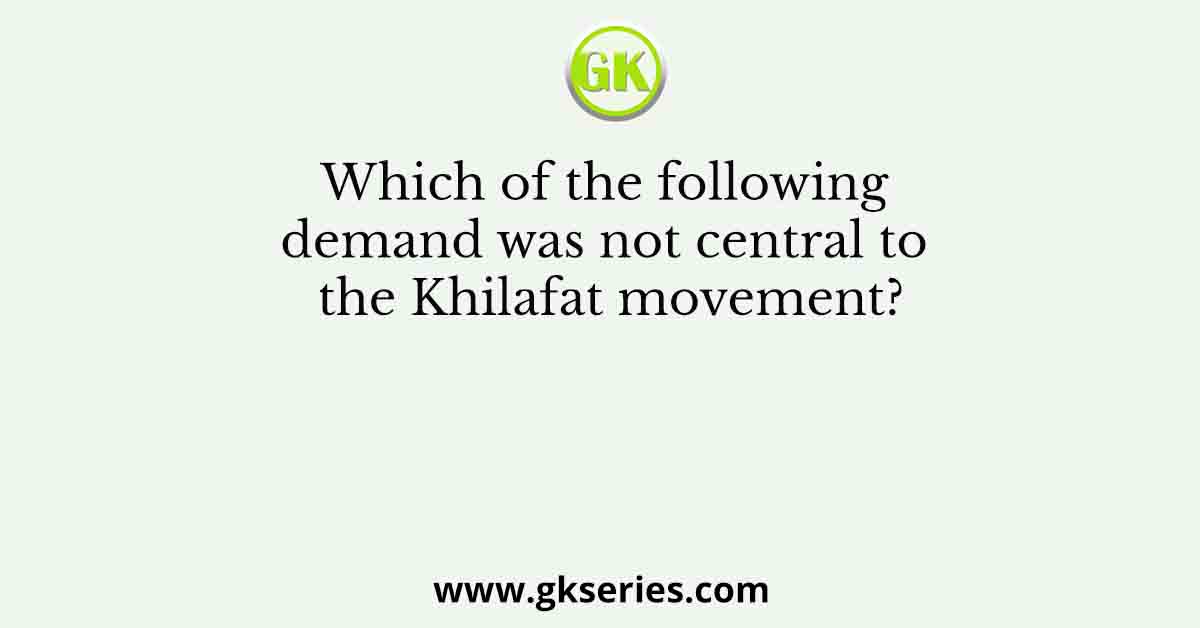
Q. Which of the following demand was not central to the Khilafat movement?
(a) That the Turkish Sultan or Khalifa must remain in control over the Muslim’s sacred places
(b) The Khalifa must be left with sufficient territory to enable him to defend the Islamic faith
(c) Arab, Syria, Iraq, and Palestine (Jazirat-ul-Arab) must remain under muslim sovereignty
(d) That Mustafa Kamal Pasha should modernise Turkey
Ans: (d) That Mustafa Kamal Pasha should modernise Turkey
Explanation:
The correct answer is (d) That Mustafa Kamal Pasha should modernize Turkey.
The demand that Mustafa Kamal Pasha should modernize Turkey was not central to the Khilafat movement. The Khilafat movement was a pan-Islamic movement in India during the early 1920s that emerged as a response to the potential abolition of the institution of the Caliphate and the disintegration of the Ottoman Empire.
The central demands of the Khilafat movement, which were supported by Indian Muslims, included:
(a) That the Turkish Sultan or Khalifa must remain in control over the Muslims’ sacred places.
(b) The Khalifa must be left with sufficient territory to enable him to defend the Islamic faith.
(c) Arab, Syria, Iraq, and Palestine (Jazirat-ul-Arab) must remain under Muslim sovereignty.
These demands focused on protecting the religious and political interests of Muslims, particularly regarding the authority and territorial control of the Caliphate. The Khilafat movement aimed to mobilize Indian Muslims in solidarity with their fellow Muslims in Turkey and to protest against what they perceived as the undermining of Islamic institutions and rights.
The demand for Mustafa Kamal Pasha, who was a prominent Turkish leader and advocate of modernization in Turkey, to modernize Turkey was not central to the Khilafat movement. The movement primarily sought to protect the religious and political rights of Muslims, rather than focusing on internal developments within Turkey itself.





